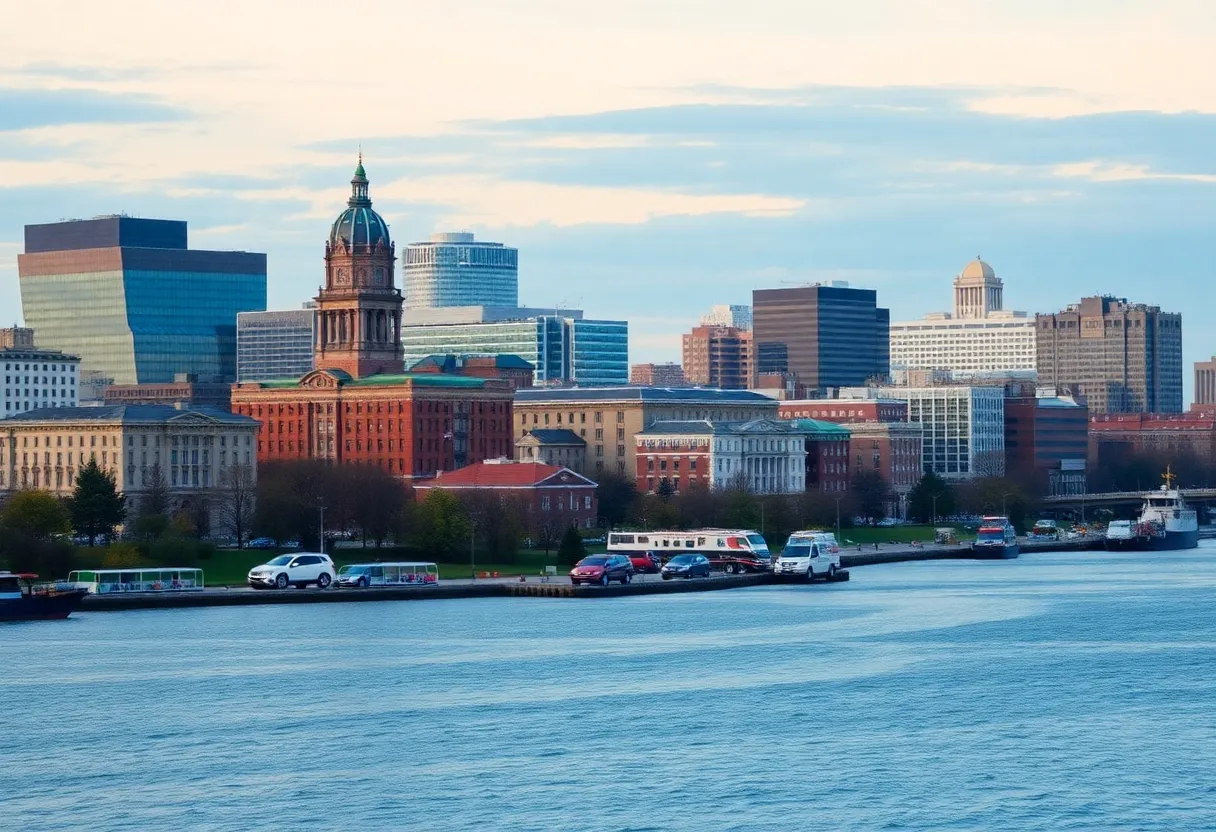News Summary
Boston is facing a projected 10% drop in international visitors by 2025 due to economic and diplomatic tensions. This decline reflects a nationwide loss of around $12.5 billion in international tourism spending. Local experts warn that shifting travel preferences and perceptions about U.S. entry procedures are further complicating the situation. The decline in tourist numbers is raising alarms about potential job losses and economic challenges for a city heavily reliant on tourism.
Boston Tourism Faces Significant Decline Amid Economic and Diplomatic Tensions
Boston is bracing for a projected 10% drop in international visitors in 2025, as economic concerns and strained diplomatic relations impact tourism in the region. This downturn comes alongside a broader forecast of a nationwide loss of around $12.5 billion in international tourism spending across the United States.
According to industry experts, Boston, which relies heavily on foreign tourists, particularly from Canada—the city’s largest source of international visitors—faces an immediate need to adjust its tourism strategies. Local tourism leaders have revised their visitor forecasts downwards, shifting from an anticipated growth of 4-5% to a decline of 10%.
Impact of Economic and Political Factors
Martha Sheridan, the president and CEO of Meet Boston, has acknowledged the slight economic decline and the potential repercussions of political uncertainties as contributing factors to this trend. In March of this year, border crossings into the U.S. fell nearly 33% compared to 2023, while air travel from Canada saw a decrease of 13%, illustrating the shifting preferences of international travelers.
The World Travel and Tourism Council cautions that the U.S. could see international travel spending drop from $181 billion in 2024 to $169 billion by 2025, a significant setback for the tourism industry. Victor Matheson, an economics professor at the College of the Holy Cross, notes that many Canadian tourists are opting for trips to alternative destinations, citing feelings of disrespect from the U.S. government as a reason for their change in travel plans.
Growing Concerns Among International Travelers
The decline in tourism is compounded by a growing number of travelers from around the world reconsidering their trips to the U.S. Factors driving this reconsideration include rising diplomatic tensions, complex visa processes, and safety concerns. These shifts have already begun to manifest as an increase in travel advisories and heightened immigration enforcement, which are reshaping the landscape for international tourism.
As of last August, the U.S. welcomed 7 million international visitors, but this year is projected to be markedly different. The downturn experienced by Boston is reflective of wider trends impacting other major cities; for instance, New York City anticipates a 17% decrease in international tourists in 2025, with potential losses in tourism revenue reaching up to $4 billion.
Broader Implications for the Economy
Tourism is vital to Boston’s economy, supporting approximately 56,000 jobs, which constitutes about 6.4% of the local workforce. The potential decline in tourist numbers is raising alarms among city officials, with local leaders warning of a possible financial crisis due to the shifting dynamics of federal tourism policies. Furthermore, the U.S. Travel Association estimates that a 10% drop in Canadian visits alone could cost the country $2.1 billion and jeopardize around 14,000 jobs nationwide.
In Massachusetts, the economic contributions from tourism were significant in 2023, with visitor spending reaching $23.6 billion and generating over 154,000 jobs. Despite these statistics, concerns about inflation and dwindling consumer confidence have led to a decrease in short-term rentals and overall tourist expenditure across popular destinations like Cape Cod.
The Future of Boston Tourism
Looking ahead, Boston’s tourism board is shifting marketing efforts to attract domestic travelers, taking a proactive approach to mitigate the downturn in international visitors. Nonetheless, the landscape remains challenging, with negative perceptions regarding U.S. entry procedures deterring potential visitors, particularly among Canadians.
This situation represents the second major downturn in international tourism for the U.S., potentially posing long-term challenges for economic recovery and local job markets in cities heavily reliant on tourism. As Boston navigates through this period of uncertainty, the focus will remain on adapting to the changing climate of travel and visitor expectations.
Deeper Dive: News & Info About This Topic
HERE Resources
Economic Risks from Federal Policies Threaten Massachusetts
Boston to Welcome Michelin Guide in New Partnership
Boston Welcomes Michelin Guide
Boston and Cambridge Set to Join MICHELIN Guide
Boston Poised to Join Michelin Guide
Boston Partners with Michelin Guide to Elevate Culinary Scene
Massachusetts Ranks Ninth Best State in U.S. News Report
U.S. States Launch Campaigns to Attract Canadian Tourists
Boston Hosts Governors and Canadian Leaders to Discuss Tariff Impacts
Massachusetts Faces Economic Challenges Due to Federal Policies
Additional Resources
- Travel and Tour World: Boston Joins Other States in Tourism Decline
- Wikipedia: Tourism in the United States
- Boston Globe: Tariffs May Affect Canadian Tourist Flow
- Google Search: International Tourism Trends 2025
- CBS News: Cape Cod Summer Rental Prices
- Encyclopedia Britannica: Tourism
- Skift: U.S. Travel Spending Shows Signs of Cooling
- Google News: Boston’s Tourism Decline

Author: STAFF HERE BOSTON WRITER
The BOSTON STAFF WRITER represents the experienced team at HEREBoston.com, your go-to source for actionable local news and information in Boston, Suffolk County, and beyond. Specializing in "news you can use," we cover essential topics like product reviews for personal and business needs, local business directories, politics, real estate trends, neighborhood insights, and state news affecting the area—with deep expertise drawn from years of dedicated reporting and strong community input, including local press releases and business updates. We deliver top reporting on high-value events such as Boston Marathon, Head of the Charles Regatta, and Boston Harborfest. Our coverage extends to key organizations like the Greater Boston Chamber of Commerce and Associated Industries of Massachusetts, plus leading businesses in finance, biotech, and insurance that power the local economy such as Fidelity Investments, Biogen, and Liberty Mutual Insurance. As part of the broader HERE network, we provide comprehensive, credible insights into Massachusetts's dynamic landscape.



